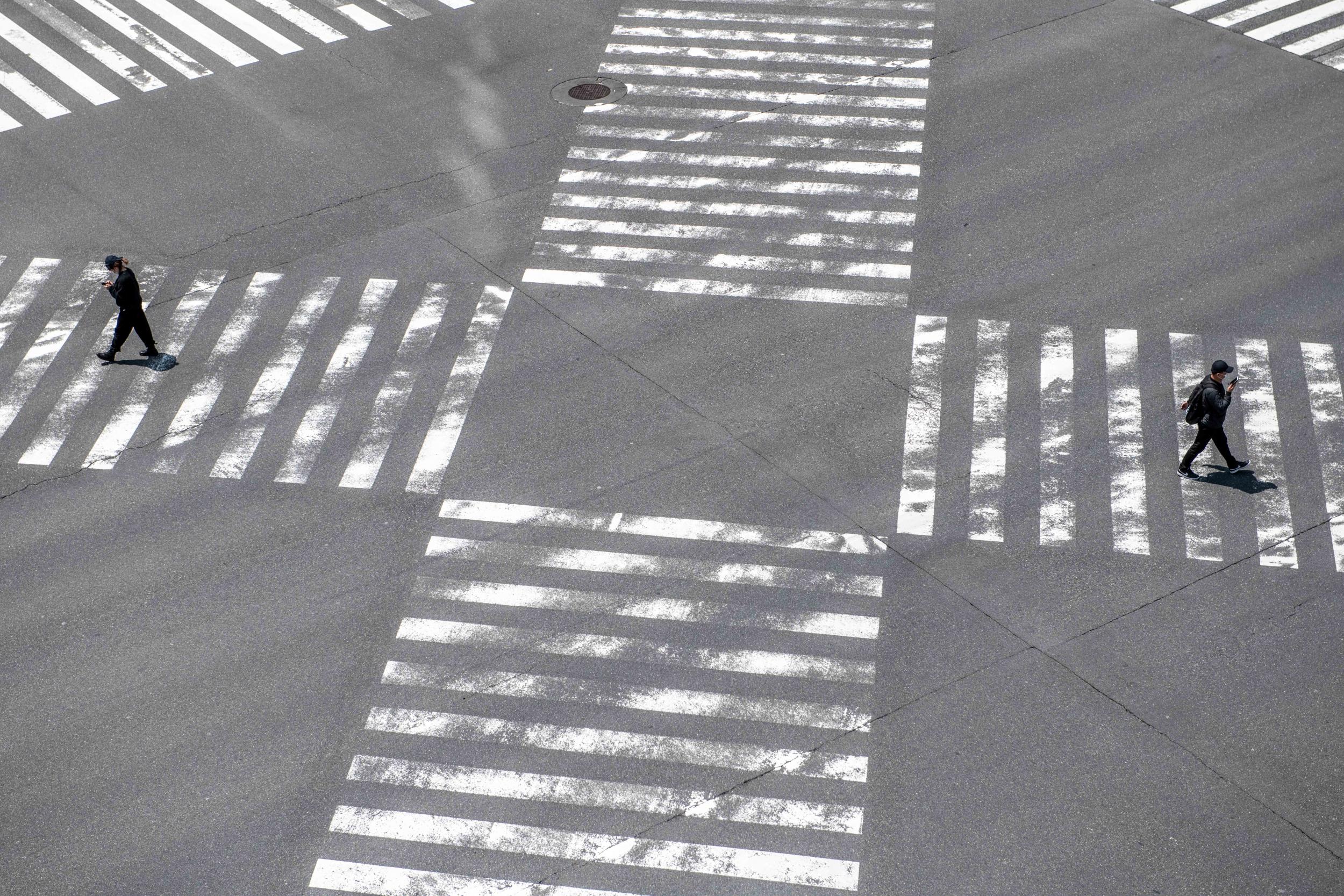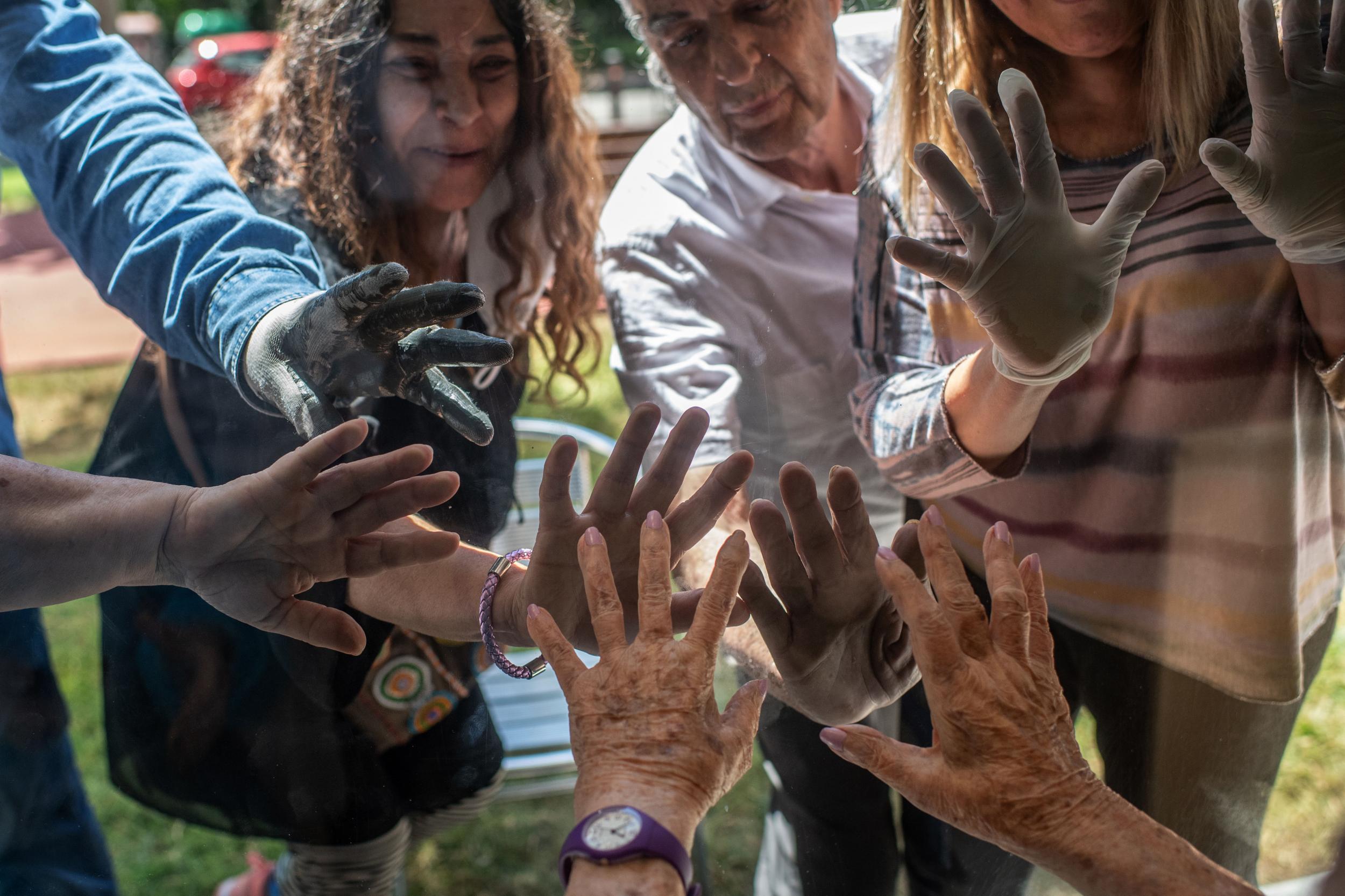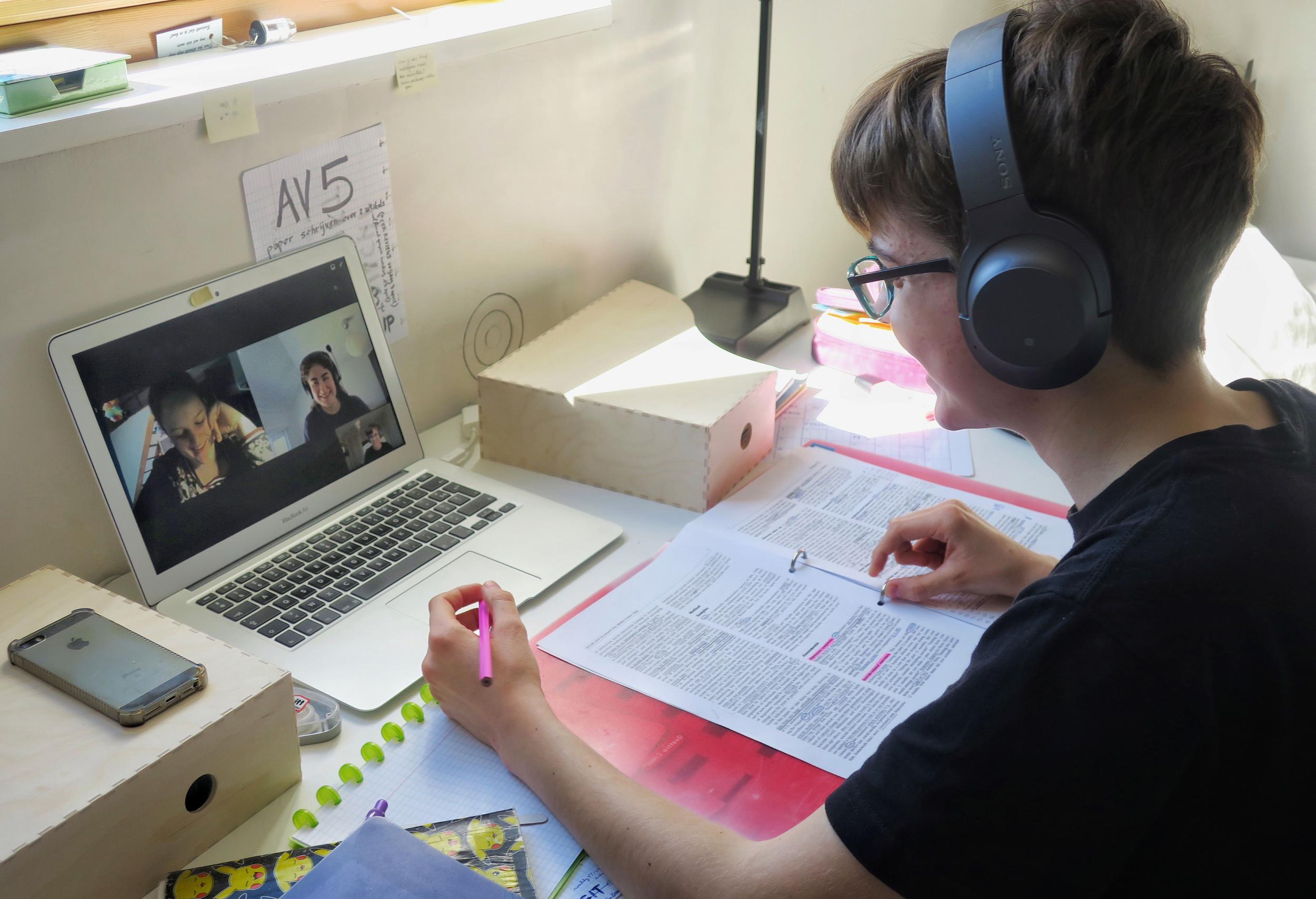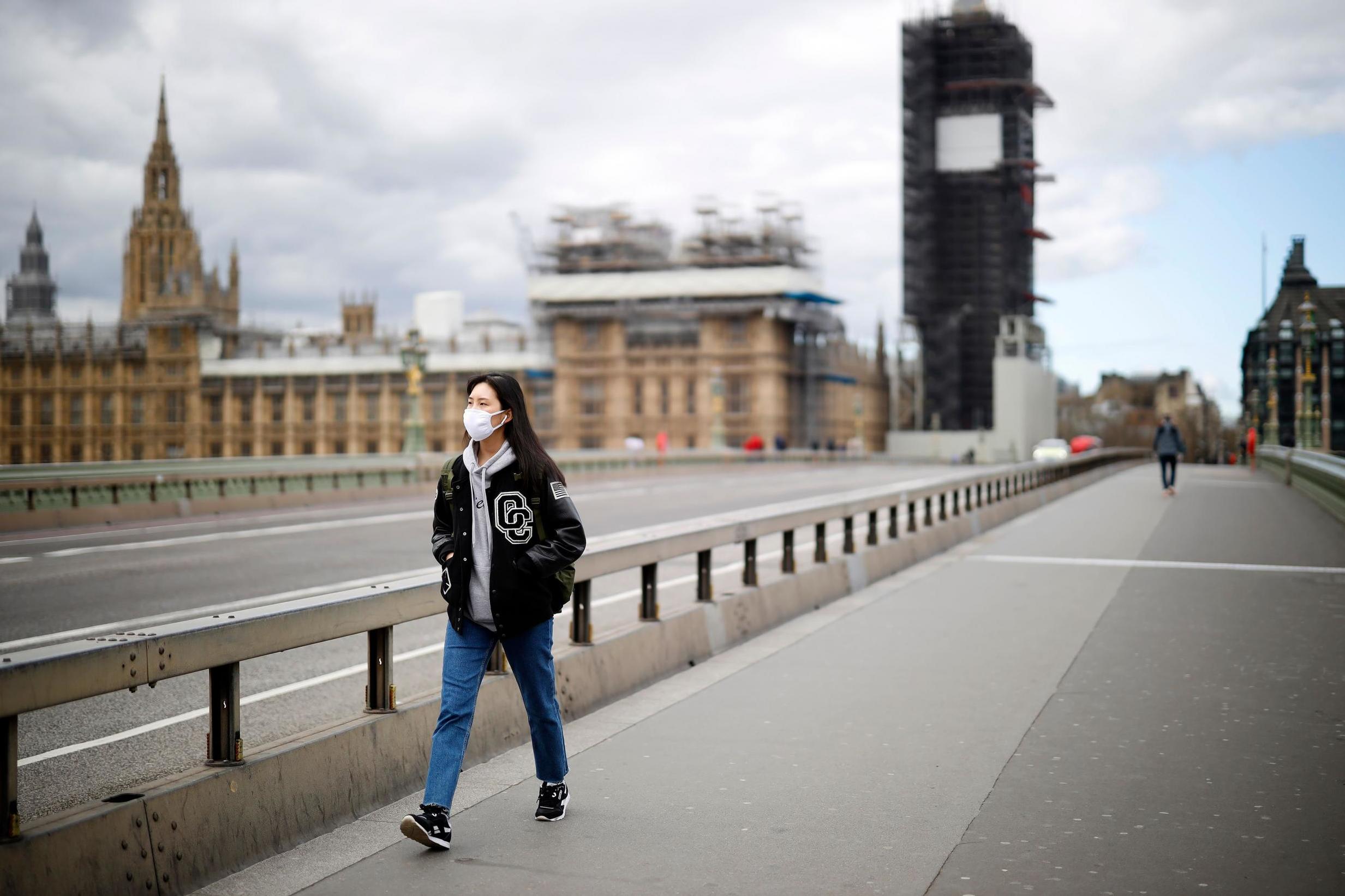Why did it take a pandemic for us all to realise who our friends really are?
Coronavirus has had a big impact on relationships, but this isn’t necessarily a bad thing. Sam Hancock meets the people ‘funnelling’ their friendship circles, reaching out to lost loves or just enjoying a bit of alone time


The reason the popular US sitcom Friends is still relatable 16 years after it finished filming is that it plays out every social, moral and ethical situation that all friendship groups experience at one time or another: the on-again, off-again relationship, developing feelings for a friend’s ex, helping a friend move into their new flat (“PIVOT! PIVOT!”). Really, though, the show’s beauty lies in the way it captures the joy we get from doing absolutely nothing with the people we choose to love.
Of course, the cult classic also captures the adversities and awkward moments of close friendships, such as in the episode where Monica finds out that Phoebe once tried to “cut her out” by dodging her phone calls and avoiding seeing her because she found Monica “too controlling and overbearing”. So Monica responds in kind. But, by the end of the episode, all is resolved and their friendship is restored.
The same can’t be said for some real-life friendships though, especially after the social restraints imposed by lockdown. According to a new study by 12 sociologists in France, interpersonal relationships have fallen victim to the “funnelling effect” of being in confinement. Funnelling is the process by which large circles of friends are cut down, either temporarily or indefinitely.
Some 16,000 people – a mix of men and women – who responded to the survey said lockdown had “severely tested and sometimes transformed” personal relationships. Unsurprisingly, 60 per cent said they focused more of their attention on family, which could explain the loss of communication with friends. The data concerning friendships, however, is much bleaker. While some said that new friendships had been formed and contact with others lost, just 40 per cent said they had kept up the same level of communication with their existing friends. On top of that, compared to the 10 per cent of people who said they spoke to their family less than usual during lockdown, 22 per cent admitted they had contacted their friends less.
The sternness of France’s lockdown is important to note, as it was kept in rigid confinement very early on compared to other countries. Still, the study’s findings can be applied around the world in order to answer why some relationships made the cut during lockdown, and why others fell by the wayside. Michel Grossetti, one of the study’s authors, says the sociologists found that during lockdown people were “forced to make choices”. For those who saw a lot of people “in ordinary times”, it was no longer possible to preserve those connections. “Many, especially among the young and those who live alone, complained that they could no longer maintain the relationships they were used to,” Grossetti says. “But some respondents say they are relieved to limit exchanges that are considered too superficial.” As some interviewees expressed: “The situation forced us to distinguish between friends who mattered and those we saw in group situations.”
A person might cull a friend for a number of reasons but, according to psychotherapist Lucy Fuller, there is even more of an incentive to take such drastic action during a “strange situation” such as lockdown. “Communications that we made with friends during lockdown needed to be of value,” she tells me, “meaning the friends that you might go and meet in normal life, who are part of a group that you aren’t particularly close to, that don’t make you feel good, are going to be the ones you put to one side while savouring the people you actually get something you need – and want – from.” Fuller suggests lockdown has been a rare opportunity for some to re-evaluate not just themselves, but their friendship circles. “In life, you have friends that give you energy and are an absolute joy to be around, and then there are friends that take energy from you and can leave you feeling quite downhearted,” she says. “So what lockdown has done is force us to ask ourselves: ‘Why am I still arranging to meet these kinds of people?’ And the answer is, in our busy lives it’s something we automatically do.”

Looking behind the “why” is, Fuller tells me, a valuable exercise that helps us to realise there might be people in our lives we’d rather cut loose. That’s certainly what happened to Stevie Thomas. “I think this has been a long time coming to be honest,” the serial restaurateur and freelance food writer tells me when I ask why he’s embarked on pruning his friendship circles. Thomas, whose credits include co-founding The Rum Kitchen, a popular Caribbean food and bar chain in London, and appearing on E4’s renowned reality show Shipwrecked: Battle of the Islands in 2007, says his role in the food and drinks industry required a lot of him – particularly when it came to events, parties, nightlife and socialising. “When lockdown came around, it felt like someone had kicked the plug out of the TV,” he says. “I stopped watching life go by, began ignoring all the white, static noise I was used to and took control by cutting out the bulls**t.”
To be honest, it’s quite a good excuse, isn’t it? Certainly if you were cutting off friendships right in the midst of the pandemic, this is a pretty handy time for anyone who’s not brave enough to say: ‘I don’t want to have a drink with you every Friday because I get nothing from it’
For all the negatives the coronavirus standstill brought, Thomas says there were “definitely some positives”. Being forced to spend time on his own and practise the “self-care we all bang on about” showed him that with it comes reassessing who we spend time with. After all, he points out, friends make up a massive part of our lives and if they’re the right ones, that’s a good thing but if they’re not… “well, you get the picture”. What he seems to suggest is that friendship should never be a drag – and if it is, we can’t, or at least shouldn’t, really call it friendship. “The energy I’m now putting in, and getting back, to the close friends of mine who I’ve neglected by hanging out with people who were just searching for the next high is better than ever,” he says. “I’ve even found myself reconnecting with ex-girlfriends who I still care about and haven’t spoken to for ages – mostly, I’m just enjoying chatting to people I actually want to and don’t feel I have to for the sake of a good night out or to keep up appearances.”
Thomas is currently going through a very big change professionally, taking a step back from the glitz and glamour of London’s food and nightlife scenes to pursue a culinary writing career, so admits that lockdown “weirdly came at a really good time for me – if that’s even possible”. Without the opportunity to take time out and be separated from his wider circle of friends, Thomas says he “definitely would’ve just carried on the way I was going – because it’s so much easier to do that than make a change”. After explaining just how wide that circle extends, it becomes clear why he refers to his social life as white noise. “I’ve really just had time to think about what friendships actually means,” he says, “and come to the realisation that a few people you know through another group you sort of know, probably aren’t close friends who need the energy I want to give to the people I care about – especially when that involves said people taking a lot from me, and giving very little back.” Was lockdown really just an excuse, then, to make changes and cut people out? “Definitely. I felt like I was finally able to ghost a certain WhatsApp group or air a phone call from someone and not feel guilty,” he says. He pauses, then laughs. “I’m not sure if that makes me sound really bad but I think with lockdown came a time of change for everyone, which for me meant a time to wind down and reassess the people I was hanging out with and the life I was leading. And I’m pretty grateful for that.” He adds: “And actually, saying it out loud, I realise that’s not a bad thing at all.”

According to Fuller, the psychotherapist, there’s “absolutely nothing wrong” with using lockdown as an excuse to do something, or make a change, particularly if it leads to bettering ourselves mentally. “To be honest,” she says flippantly, “it’s quite a good excuse, isn’t it? Certainly if you were cutting off friendships right in the midst of the pandemic, this is a pretty handy time for anyone who’s not brave enough to say: ‘I don’t want to have a drink with you every Friday because I get nothing from it.’ It gives you the opportunity to shuffle people around and re-adjust to a social group that best suits you without anyone being able to blame you.”
Anthony Morton, who lives in Melbourne with his partner Daniela, tells me he felt “energetically and instantly clearer” after using lockdown as a “chance” to free himself from his “toxic” family and some equally toxic friends. After suffering a fairly severe brain injury some years ago, Morton said he was “awakened” to the unhealthy relationships he had with his mother and father – both of whom he describes as being “co-dependent and manipulative”. In the years of recovery that followed his accident, Morton says his parents began controlling his movements and made him feel as though he had “no authority” over his own life. “I realised they’d always been like that,” he recalls. “They’d never let me do anything for myself or really have any authority over my own life.” It wasn’t his parents who forced him to make a change though. He did when he realised he was acting in the same possessive way towards a close friend who he’d begun “relying on too much” in the wake of his problems at home. “When [my friend] began pulling away from me, I realised I needed to take some time to work through these unresolved childhood issues,” Morton tells me, “and coincidentally, that was just as lockdown began.”

The past few months have been “a mix of emotions”, he says, but overall the effects of funnelling have been positive. “I go from feeling guilty, to free, to liberated, to empowered and then back to guilty,” he says, “especially when it comes to my close friend who I’m no longer in contact with – I guess that comes from a feeling of nostalgia.” He adds: “The thing is, I know I’m doing the right thing to build myself up.” In a similar fashion to Thomas, Morton speaks about the habits we get into, how life “can just pass us by when we’re stuck in a day-to-day routine”. Before lockdown, Morton says he was so used to going along with what his family and friends thought that he didn’t leave any room to consider what he felt or thought. “All good relationships are built on mutual respect and a genuine sense of love,” he says, “and it’s easy to lose sight of that which is what I’m trying to figure out and build back up – lockdown has given me the time and space to do that.” Morton also says he is now seeing a psychologist – “who is giving me the support I need to help me feel stronger in myself” – which is another decision he feels he wouldn’t have made were it not for lockdown.
If you suffer from social anxiety and the idea of making conversation with people is just a really horrible experience, then the thought that you don’t have to do that anymore is great. It can really reassure people – they’ll be happy and might even be happy to stay like this forever
The question is, will these changes in behaviour last, or are they a temporary fix while we remain in the ”new normal” of being largely locked away from big groups of people? Morton says he can’t be sure if his new, smaller friendship groups will last long-term but what he does know is that, for now, he has done the right thing. Thomas is more definitive: “This is it for me, I know it,” he tells me, “I haven’t felt this happy and in a way liberated for so long, and that all started when I cut out those looser connections and started concentrating on the people I really wanted to have around me. I’m not giving that up for anything.”
Siobhan Murray, a behavioural expert, says the changes people make during the pandemic are likely to last because “friendships, especially new ones that are forged, will be built on current beliefs and values rather than past obligations”. Murray says the culling of friendship groups around the world is more than just ignoring a distant friend’s phone call because you don’t want to go for a drink – it’s a survival instinct in the face of emotional stress. “When we’re placed under emotional stress like we have been in lockdown, we use up a huge amount of our energy in order to get from day to day,” she says, “and one of the ways we can, and do, rectify this is to reduce the amount of people we interact with. After all, every interaction with another person involves emotional energy.” She adds: “For some, pulling back on friendships hasn’t been an intentional process but one drawn out of our need to survive; it’s a human instinct behaviour to protect ourselves.”
Saurav Dutt, an LA Times-shortlisted novelist, says the funnelling effect is one that will last for him. He believes by actively deciding to cut ties with people who “haven’t been there for me during a scary time – even to check in”, he has been brought closer to those who have. “There is a realisation of separating the wheat from the chaff, and understanding that those that use you will only drag you down in every conceivable way,” Dutt tells me. “I see smaller friendship groups ring-fencing themselves and becoming all the more powerful. We’ll look at each other and know that we were there for each other when it mattered and that can only increase respect between friends and bring them even closer.” Dutt says that it is important to be selective when it comes to friendship, if we are to give someone a part of us, to be their friend, then that must be valued and reciprocated. He also seems taken by the poignancy of friendship. Murray agrees: “Human connection and social interaction is one of our primary needs – it feeds us in lots of ways – so we need to be careful we don’t end up using lockdown to cut out all our friends.” Rather than just cut people out with no thought, Dutt’s process seems to be one of re-evaluating and “re-energising” in order to get the most out of friends that we can. And, similarly, to give them the most we can.

Dutt says he used lockdown (“a time of moral uncertainty, fear and panic”) as a period of self-reflection. He also says the effort he has made to “mute WhatsApp notifications, leave certain group chats, and mute Facebook and Twitter feeds” has made him feel more at peace, as though his “head is not cluttered with negative energy and thoughts” and allowed him to “focus on the real friendships in my life and drawn me even closer to them, giving them a power and sustenance that needed to be re-energised.” Dutt goes as far as saying he feels a sense of self-worth having made awkward decisions to end friendships because “I can admit that I wasn’t going to allow myself to be the fall guy for a failing friendship, that I could address it and end it on my own terms”.
The lasting impact of lockdown’s funnelling effect remains to be seen. Fuller says we’ll inevitably revert back to our old ways post-pandemic because “humans are humans”. She tells me: “We won’t come out of the pandemic better people, worse people, more sensitive people. I think it’ll just go back to how it was. Really, there would need to be a lockdown that went on for years for anyone to feel any lifelong, meaningful changes.” Of course, Thomas and Dutt don’t agree. Thomas in particular seems adamant that he will continue to ride the socially cleansing wave. “I’m happier, stronger and just better, really, having spent some time alone in lockdown and making moves to free myself from certain social pressures,” he says. This begs the question: can confinement, or at least time apart from others, ever truly be a healthy thing?
Elin Asklöv, a linguistic expert at Babbel, tells me that in Sweden, there are proverbs and phrases dedicated to the art of being alone. “‘Ensam är stark’ translates into English as: ‘Alone is strong’, which reflects just how important the value of independence is in Sweden.” In Sweden, it is instilled in children from a young age how important it is to be independent. “It’s very deeply ingrained, even within the Swedish language itself,” she says. “Take the proverb: ‘Själv är bäste dräng’, which means you do better without help; the phrase ‘Man är sin egen lyckas smed’, which translates to ‘the smith of your own luck’; ‘Bra karl reder sig själv’ – ‘a good man takes care of himself’. The list really does goes on.”
Actively choosing to take time for yourself might be a typically Swedish trait but doing so doesn’t mean that you’re totally constrained to not meeting friends or family, according to Asklöv. “It’s more that the option to spend time alone – and away from friends – is not seen as rude or awkward, which may be different in other cultures.” Asklöv goes on to talk about the various mental health benefits that “spending time with yourself can provide” such as relief from social pressures, an increase in mental happiness, as well as scientific proof that it can improve stress management. There is, of course, the worry of loneliness, which lockdown has made all too apparent for some. Fuller says too much time alone can be a detriment to our mental health. “I have a lot of introverted clients who were very ashamed to admit that lockdown was great for them,” she says. “If you suffer from social anxiety and the idea of making conversation with people is just a really horrible experience, then the thought that you don’t have to do that anymore is great. It can really reassure people – they’ll be happy and might even be happy to stay like this forever.” But, she quickly stresses, “if people already live alone, this can reach a dangerous point because where you get lonely, and loneliness is a real trigger for depression, there’s a tipping point”.
Like every decision in life, the choice to funnel friendship circles must be balanced to ensure we’re still supported by people and not left totally isolated. Asklöv suggests “it’s perhaps best to live by the wise Swedish proverb: ‘Lagom är bäst’, which means ‘the middle ground is the best’”. She’s right, of course – that’s certainly what Monica and Phoebe decided was best too. This way we can properly reap the benefits of not necessarily finding strength in being alone but, as Thomas, Morton and Dutt have, finding strength and happiness in being around those that truly matter to us.
Join our commenting forum
Join thought-provoking conversations, follow other Independent readers and see their replies
Comments